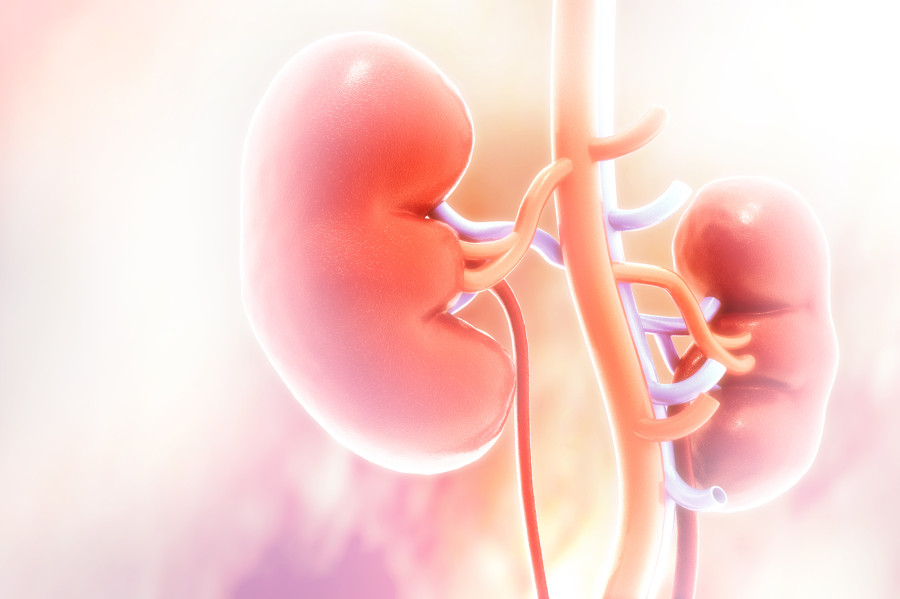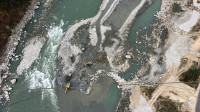National
Kidney failure avoidable with timely intervention
Lal Bahadur Gurung worked six years in Qatar as a menial labourer and returned to Nepal with both kidneys damaged.
Arjun Poudel
Lal Bahadur Gurung worked six years in Qatar as a menial labourer and returned to Nepal with both kidneys damaged.
The 33-year-old Gurung of Ghampesal of Gorkha district, who has been receiving dialysis service for the last two years at the National Kidney Centre, said that he was aware of high blood pressure but did not take steps to control it before he was diagnosed with renal failure.
Gurung is among the many foreign returnees, who suffer from renal failure. High blood pressure and high blood sugar are the leading causes of kidney failure. Glomerulonephritis and pregnancy-related kidney diseases are among other causes for renal failure.
“It was too late before I realised that health is more important than wealth,” said Gurung, adding that it has been tough for him financially to continue the dialysis despite free services provided by the government. He said that he has no one to turn to for kidney donation and is forced to stay in Kathmandu to continue his dialysis.
As per the World Health Organization’s estimation, 10 percent of total population (300,000 in Nepal) suffer from renal problems, 30,000 are in the final stage of kidney failure and among them 3,000 people suffer from kidney failure every year in Nepal.
The government provides both dialysis and transplantation services free of cost. Over 4,500 people are currently receiving free dialysis service from various hospitals throughout the country and about 1,500 people have undergone kidney transplant since the service started about a decade ago.
Every year the government spends Rs2.11 billion on treatment of patients with renal failure with the figure of expenditure going up as more and more people are seeking treatment.
“Providing free dialysis service is not a solution,” said Dr Pukar Chandra Shrestha, executive director at the Shahid Dharma Bhakta National Transplant Centre. “The government should encourage renal failure patients to opt for transplant and launch awareness to prevent kidney diseases.”
According to Shrestha, the chances of survival for people suffering from renal failure were slim before the government’s move to provide dialysis and transplantation services free of cost.
Dr Rishi Kumar Kafle, a senior nephrologist, said that the government has been focusing only on treatment of 3,000 people living with kidney failure but have paid little attention to 270,000 others who suffer from kidney disease in Nepal. “The government’s initiative to provide free dialysis and transplantation services is not feasible in the long-term. The number of patients with kidney problems is on the rise and the government must intervene soon to reduce the number,” said Kafle.
The government has established laboratories at the health post level offering free kidney functioning tests but very few people make use of the service. Kafley said that precautionary measures can be taken to avoid kidney diseases and the best way forward, according to him, is to launch awareness campaigns, the cost of which is minimal as compared to the treatment cost of renal patients.
“Kidney functioning test at the health post level should be made effective; awareness campaigns should be launched at the school and community level to save the kidney from severe damage,” Kafley stressed.
Doctors say that kidney starts becoming weak after 30 years and people above the age of 30 should undergo a renal functioning test at least once a year. Likewise, people suffering from diabetes, high blood pressure, and those with a history of kidney damage in the family should regularly get tested. The easiest way to ensure healthy kidney is to exercise regularly, control blood pressure and blood sugar, drink enough water and live stress free, according to doctors.




 20.98°C Kathmandu
20.98°C Kathmandu














